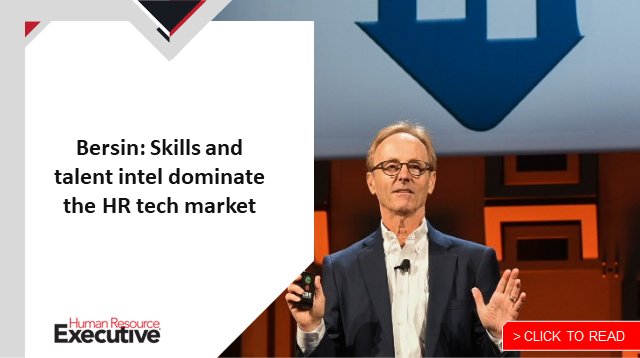As we wind down the last few days of 2022 (or get re-engaged in the first few days of 2023, depending on when you are reading this), technology “trends” and “predictions” articles are common. While I admit to authoring at least a few year-end pieces myself over the years, some time back I decided to avoid the practice of predicting, as it became apparent that, to really stand out in the sea of predictions one had to get more and more outlandish; otherwise, your takes would be the same as everyone else’s. Additionally, there’s the fact that the predictions themselves, for sure in the HR technology space, seemed never to change much over time.
Don’t believe me? Here is a snippet of some predictions I had for 2010:
Networking
Smart organizations will recognize the value in employee networks, both internal and external, and develop strategies and implement technologies to help grow, enhance and leverage these employee networks to increase revenue and profitability.
Trust
Trust of employers by employees will continue to erode, and only the very best companies—the ones that respect, support and develop employees—will see their long-term prospects for growth and success enhanced. The exception being energy companies and health insurers; they will rake in profits in 2010 no matter how they treat their employees and customers.
Mobile tech
Workforce technology will go more “mobile,” partially fueled by workers’ expectations and demands, and mostly due to employers realizing that, if everyone has an iPhone or BlackBerry that can easily access company systems, most top performers will feel compelled to work morning, noon and night. Employees will begin to negotiate “non-working” hours in employment contracts instead of employers demanding adherence to a schedule of working hours.
Pretty crazy that I wrote those (now obvious-sounding) predictions a full 13 years ago. My favorite line was the one about employees having to schedule “non-working” hours with their employers in order to be free from their work and devices for at least some part of the day. That battle continues to be fought as we enter 2023, made even more important by three years of pandemic disruptions and the increased prevalence of “work from anywhere”—which some organizations translate to mean “work from everywhere,” but that is a subject for another day.
When thinking about any “expert” predictions for HR technology, or pretty much any technology related to work and workplaces, it’s useful to recall one of the more famous and thoughtful observations about the effects of new technology on existing systems, processes, and organizations. It was stated by Roy Amara, and it reads, simply:
“We tend to overestimate the effect of a technology in the short run and underestimate the effect in the long run.”
 That concept is an important one to remember when considering the impact of any new and emerging technology. New technologies tend to be adopted initially and more rapidly in the consumer or personal space, where barriers to usage are lower, risks are minimal and costs are usually a non-factor.
That concept is an important one to remember when considering the impact of any new and emerging technology. New technologies tend to be adopted initially and more rapidly in the consumer or personal space, where barriers to usage are lower, risks are minimal and costs are usually a non-factor.
Consider the two specific types of technology I mentioned back at the end of 2009: social media and social networking tools, and the then-new market for smartphones and associated apps. Both forms of new technology were mainstream in society as personal and consumer innovations before they became adopted more broadly as work tools and in workplaces. And even then, it has still taken over a decade of development and innovation for these technologies to become present in all organizations.
I talk with HR tech providers still to this day who are onboarding new customers with their very first deployment of mobile apps for their HR, payroll and benefits functions. As befits Amara’s concept, back in 2009, I probably would have guessed that mobile apps for HR tech would have been mainstream by about 2012 at the outside—not for another 10 years past that point, which was more like how things panned out.
Read more insights from Steve Boese here.
I’d recommend keeping the recent technological past in mind as you close out 2022 and prepare your HR technology plans for 2023. Chances are good that during the end-of-year break you’ll read a few breathy articles about how 2023 will be the “Year of the Metaverse” for HR or how AI will become ubiquitous across the HR function or even perhaps how ChatGPT will replace job-description writing or some such (I actually think that prediction might have some potential). You might be tempted to think that if you are not on the leading edge of any of these trends, you and the organization are somehow behind the times. But that’s probably not true—not yet anyway, and maybe not for another five or 10 years.
Eventually, new technology like the Metaverse and virtual reality and AI-driven skills ontologies will likely become a normal, mainstream set of tools for HR organizations everywhere, and it would be awesome to be an HR professional in an organization on the leading edge of these initiatives. But if you are not, yet, in such an organization, don’t feel bad; these tools still need to be more fully realized, iterated, tested, revised, tested again, adopted by more providers and so on, before they will be as routine as say, mobile apps for employee access to HR data and services are today.
And as we just learned from my walk down “predictions” memory lane, that process took over a decade!
Let me close with another one of my favorite quotes about predicting what the future holds, from the legendary screenwriter William Goldman: “Nobody knows anything. Not one person in the entire motion picture field knows for a certainty what is going to work.” Goldman was talking about predicting the success or failure of any given Hollywood movie, but the general sentiment seems to be true for any industry prediction. Take them all for what they are worth—good guesses at what the world may look like 10 years from now!
Thanks to everyone for reading Inside HR Tech in 2022—and have a wonderful holiday season!



